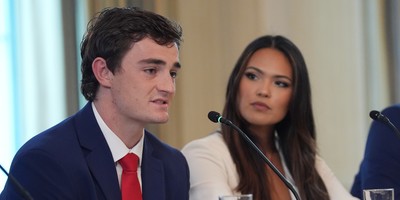A “shield law” that could make journalists virtually untouchable by federal prosecutors was stalled in the Senate over concerns raised by both Republicans and the Department of Justice. It is unclear whether or not these concerns could cause the bill to stall permanently.
Republicans were able to overcome a barrage of support by over 70 media organizations, and lodge complaints about the bill’s potential to put national security decisions in the hands of judges with no national security experience.
“A number of us feel very, very strongly in that very sensitive intelligence matters are continually being leaked,” said Judiciary Committee ranking member Jeff Sessions, (Ala.). “This bill would make it even more difficult to identify and maintain legitimate security matters, including the life and safety of American citizens.”
If a journalist is acquainted with a source that could be of use to the federal government, they aren’t required to disclose that source to the government even if a national security interest is at stake. Republicans complain that the shield law would tip the balance of power even further into the journalists’ favor.

The Department of Justice had similar concerns, balking at the bill’s proposed “balancing test.” The test would require a judge to determine whether it was more important to national security for a reporter to reveal information given to him in confidence, or more important for a reporter to maintain that confidentiality for the public good.
The DoJ wanted the last part of that equation to be dropped, favoring a system of subpoenaing reporters if the DoJ could simply produce enough evidence that national security matters were at stake. In other words, the public good would not be considered.
Recommended
Sen. Charles E. Schumer (D-N.Y.), a co-sponsor of the legislation, told the Washington Post that Democrats were well on their way “to working out a compromise" with a DoJ, though it was not clear whether or not Republican concerns would be placated through a such a compromise.
James Gattuso a fellow in Economic Policy Studies at the Heritage Institution, said any further journalistic protection could put a chilling effect on journalists’ overall inclinations to stay within the bounds of the law when uncovering or disclosing national security information.
“If they know they may have to reveal that source, they’re much less likely, or somewhat less likely to obtain evidence may be in violation of national security law,” he explained.
Supporters of the bill think that argument goes two ways, with the chilling effect extending to reporters’ inclinations to uncover information that contributes to the public good. They commonly cite the incident involving former New York Times journalist Judith Miller, who served twelve weeks in jail time after refusing to name the person who told her Valerie Plame Wilson was a covert Central Intelligence Agency officer.
“Confidential sources give us things like Watergate and Enron, and journalists don't like knowing that the iron-clad agreements they make with sources can be pried open by federal courts with threats of imprisonment, or actual prison time,” wrote journalist Chris Good in The Atlantic.
But difficulty in determining who qualifies as a journalist is only one of the many issues in determining what information deserves to be protected, said Gattuso.
“There are some very serious practical problems with how such a [journalistic] privilege would operate,” he said. “It would either operate in a very arbitrary unfair discriminatory manner that would privilege some members of the press to the exclusion of some members of the new press, or it could apply to anyone with a webcam or a cell phone.”
“Every citizen has to be prepared to give evidence when called, or subpoenaed.”

























Join the conversation as a VIP Member